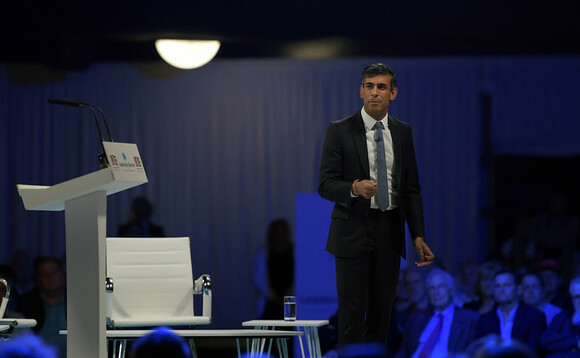New prime minister Rishi Sunak is continuing to keep quiet on his view for the future of the pensions triple lock despite predecessor Liz Truss' commitment to it only a week ago.
The triple lock - which guarantees that pensions rise either in line with wage rises, inflation or 2.5% depending on which is higher - has taken a battering in recent years thanks to a shaky economy.
Sunak previously blocked pensions rising in line with wage growth coming out of the pandemic, effectively moving to a ‘double lock' system when he was chancellor. Now, as prime minister, he is yet to confirm the future of the policy, leaving those preparing for retirement in doubt of how much money they can expect or when they can expect.
The government is now unlikely to make a commitment before the Autumn Budget next month.
Aegon pensions director Steven Cameron said the eventual outcome is "too tough to call after so many twists and turns".
"On the one hand, the prime minister has said he is seeking to deliver confidence and security, but further uncertainty over the triple lock offers neither to state pensioners," Cameron added. "He has also said he will honour manifesto commitments - which included the triple lock - although the earnings component was suspended last April."
On the other hand, Cameron said that "no-one doubts the hugely difficult challenges" the government faces in maintaining the UK's embattle economy.
"Today's state pensions are paid from the National Insurance collected from today's workers, not from some huge, accumulated pot," he lamented "Those pensioners heavily or totally reliant on the state pension are most at risk here, highlighting the benefits to today's workers of making the most of workplace pensions."
The Consumer Prices Index grew 10.1% in the 12 months to September which could result in the state pension increasing to a record £203.85 a week from next April, if the triple lock is confirmed.
"If the triple lock is ditched for a second year in a row, this flip-flop on policy effectively breaks the promise," said Canada Life technical director Andrew Tully. "The government will need to find a way to try and appease a core part of the voting electorate."





